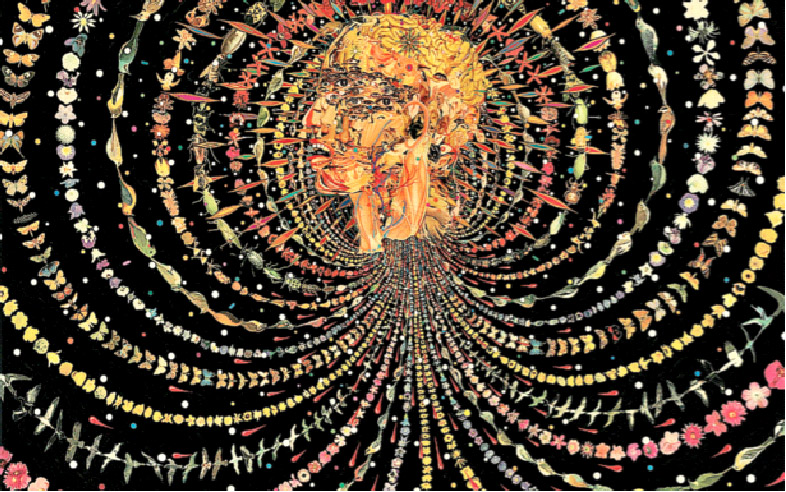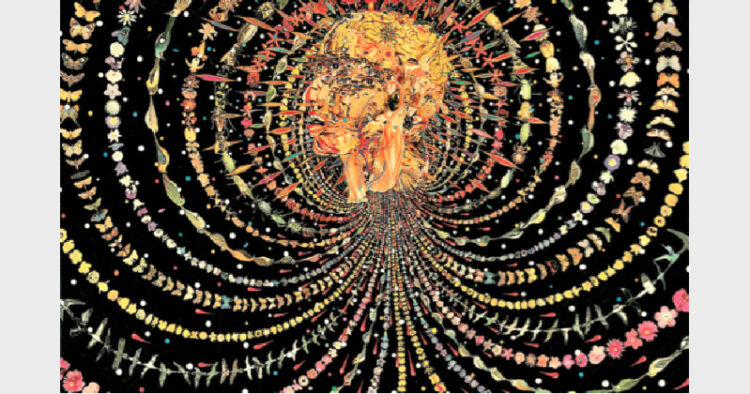 It is simply mind boggling that in spite of having a great civilisational heritage that took India to the pinnacle of glory in education and science, we are continuing with the British and Moghul time relics
It is simply mind boggling that in spite of having a great civilisational heritage that took India to the pinnacle of glory in education and science, we are continuing with the British and Moghul time relics
The Lost Memory People
Tarun Vijay
Colonialism is a state of mind. People with a long history of colonialism tend to feel grateful to their tormentors and take pride in continuing with their legacy and social protocols. Their language becomes the principal language of public discourse, their attire becomes the attire of the elite. Their behaviour pattern decides the daily life pattern of the subjugated people and the fragrance of the soil, the real and the genuine identity of the colony either becomes a matter of contempt, joke and mark of the backward or is patronised like a Ganesha in the viceregal room as a mark of admiration for the native, tribal people.
They did it in Columbus and post-Columbus era to the American Indians, to New Zealand’s original inhabitants—Maoris and to the Mayans in Latin America. People with lost memory and no sense of history look to the life, history, parliamentary practices and judicial traditions and verdicts of their colonial masters to weave a future that will be as shining and brilliant as was of their past masters.
India’s elite and the political masters belong to this category. Hence the Delhi golf clubs bar the Indian attire so that the colonial atmosphere is not disturbed. The media that belongs to this Lutyen’s Delhi mirrors the same mindset—despise everything, every thought, every organsiation that wears the fragrance of the ‘native’ praja.
We are still following the practices and the legacy of our colonial masters from the Parliament to the judiciary and daily practices of the governance.
The fact that we have failed to raise a grand memorial for our soldiers who fought full-scale war and achieved a grand victory in 1971 is just a pointer. It took 70 years and a Modi govt to decide on erecting a war memorial for the Indian soldiers. But the parliamentary practices, the way bills are passed and the categorisation of the business of the House, in zero hour, private member bills, special
mentions, aye and aye and nays and nays-charm and the bell and the speakers rights and prerogatives and their houses and protocol of the head of the state and banquets and toasts, the High Tea and the list of the invitees and the decision of the design of the official dress with a noteworthy exclusion the dress an Indian farmer and a Vidwan-scholar dons-dhoti and kurta and veshti and angavastram— the list is endless because we have learnt to live with all this and have forgotten that freedom doesn”t mean transfer of power.
So Kurta Pajama and dhoti are not official for a govt employee in the land of kurta- pyjama and dhoti-kurta but the shirt and pant are. Kurta pyjama and dhoti remain the dress of the vote seekers and the netas who frame the rule about the official dress.
The ‘native’ language Hindi remains the official language but none will work in it, and no person, worth his money and status will send his children to a Hindi medium school. It’s a matter of insult and an acceptance of your lower stature if you do so. And it’s the same story for any Marathi, Tamil, Bengali, Assamese medium schools.
The educationists have always been great nationalists. But none of them will try with a sense of pride to start
giving degrees in the language and the tradition of the land. Hence a post-graduate in Sanskrit and Tamil will receive a master of arts degree and the convocation will be held in exactly the same manner when the Viceroy or the British Governor as chancellor would come and distribute the degrees in the name of King Emperor. Except for the efforts of Swami Dayanand, whose Gurukul institutions and Shanti Niketan under Kavi Guru Rabindranath Thakur began a Swadeshi ceremony for Dikshaant samaroh with the fragrance of the soil, none even tried to turn swadeshi in education.
See the names Chatterjee, Bannerjee, Mukherjee— all have been derived or mutilated by the British from their original Chattopadhyaya, Bandopadhyaya, Mukhopadhyaya.
Mumbai was mutilated and turned into Bombay, so was Kolkata turned into Calcutta and Guwahati into Gauhati. All have been changed but the colonial mindset of the
subjugated people remained so grateful to the mutilations that we continued to live on with them happily.
So Mamta Didi is Mamata Bandopadhyaya when she addresses her Bengali bhadralok , but she has no problem being Mamata Bannerjee in Delhi !
In fact, India didn’t get freedom in 1947. That was merely a transfer of power .The real freedom means to have the sense of ownership.
We remained the tenants of the colonial masters. India became a translation of the British rule. Simply translation.
The ICS became IAS and the Khaki police nursed the same feeling of distrust and intense hate for the ‘natives’ breeding corruption and turning as brutal and insensitive to the free Indian as they were to the subjugated native.
The Hindu and all those whose faiths originated in India and were the worst sufferers of the massacres and contemptuous behaviour of the colonialists—whether they were Moguls or the British.
The hangover of the slave mindset and the British egacy of looking down at anything Hindu or Sikh or Buddhist has continued.
Being Hindu was officially unacceptable. So a Viceroy could build a special church for his Sunday prayers almost next to his viceregal palace but a Rashtrapati was
forbidden to build a temple in his domain of Rashtrapati Bhawan. Because it was not built for an Indian head of the state. It was simply transferred to the Indian incumbent. Indus was never a part of the curriculum because who gave the name to the Hindus or their civilisation was a matter less significant. The Kumbh, the sanyasis, the yogis, will be discarded as the ‘hypocrites, who do nothing productive for the society but the Church priests and the proselytisers and their institutions will remain as sacred centres of faith and rightful practitioners of the gospel.
And the tradition of giving judgements in the language of the land was forbidden. Hence, the Tamils have to fight to have their Chennai High court accept Tamil as the language of judgements. Hindi will not be accepted as language of the highest court of the land though Hindi remains the official Language doesn’t come with a just alphabet. It brings with it the culture, behaviour, social practices and icons of respect too with it. When Israel gained Independence—those leaders like David Ben Gurion, who decided to declare Hebrew as the only national language to be spoken by Jews in Israel had thought about it. it was virtually a dead language in every sense of the term. Just four hundred sentences, spoken nowhere on the planet, no newspaper, no legislation ever drafted in it, not a medium of instruction in any school. But they decided that the soul of Israel resides in their language that is Hebrew. If English or German was their adopted national language it would have never instilled the sense of belongings that Hebrew helped to take to their veins and hearts.
That was the decision of a decolonised mind. Suppose in India someone demands that Tamil or Sanskrit be the language of our public discourse, Parliament and news media and the medium of instruction be also in Tamil or Sanskrit, what would happen? The person who demands this would be declared insane and lynched in the Connaught place.
Millions speak Tamil and Sanskrit, newspapers and weeklies are published in the great languages considered as the oldest languages in the world, a huge wealth of
literature is available and they represent the heart and soul of our nation. Still, we are not sure we can have them accepted by Indians the way Hebrew was accepted by the Jews in a nascent Israel.
It is the colonial mindset that works in the air and has no sense of history, as was aptly put by the noble laureate VS Naipaul.
He said, “the thing about being an Indian, and it remains true of Indian writing now, is that it seems to work without history, in a vacuum”. Indian writers don’t know why their country is in such a mess. They can’t understand the poverty of India, they don’t know why 17th and 18th century travellers talk of a derelict countryside. Very easy to think that it might be because of the British but much easier, in fact, to pay no attention to it at all.
So much is the self-deception and a guilt in our unconscious about not mentioning the subject of our tormentors and the destroyers that even a celebrated writer like R K Narayan never touched the sensitive issue of burning and looting of Hampi by Muslim marauders though in his famous Malgudi Days.
Naipaul points out that Narayan grew up near Hampi, where there are extraordinary ruins of Vijayanagaram, the capital of the ancient Hindu kingdom destroyed in the sixteenth century. “I think a writer like Narayan should have understood what had happened, especially as he’d written a guidebook to the area. But he didn’t respond to that. How can you write about your setting, your culture, if you can’t see what happened 400 years ago? He has a really magical way of writing and looking, but his picture is incomplete…it stands on no history. It hangs in the air,”. Naipaul argues.
This slavish, ugly, self-deceptive and self-defeating colonialism, that has created a people with memory loss, will have to go, will have to be eradicated if a new, resurgent India has to flower.
(The writer is a former MP and a senior columnist)













Comments